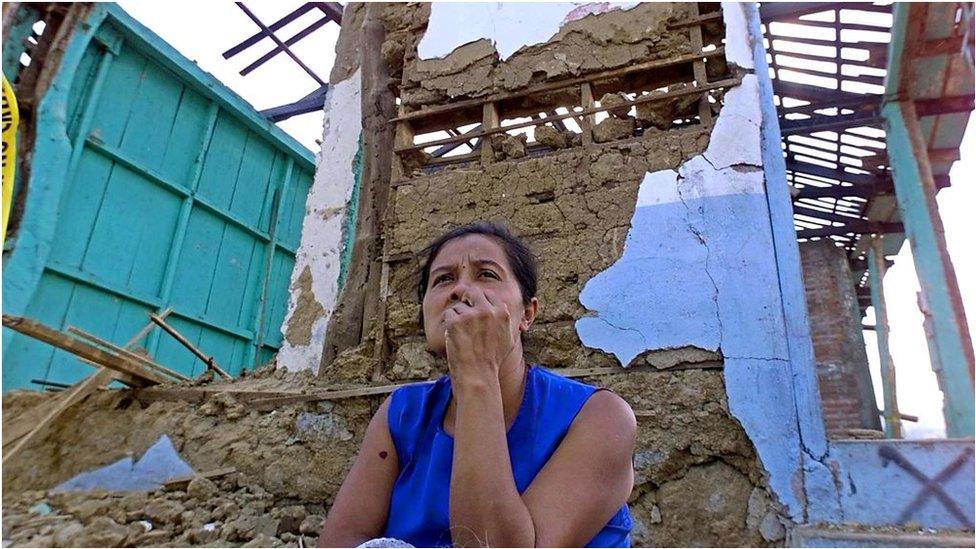Trump gives 200,000 Salvadoreans deadline to leave US
- Published
Nearly 200,000 Salvadoreans in the US who were granted Temporary Protected Status now face uncertainty
Donald Trump's administration has decided to cancel permits that allow nearly 200,000 people from El Salvador to live and work in the US.
They were granted Temporary Protected Status (TPS) after earthquakes rocked the Central American country in 2001.
Salvadoreans now have until 9 September 2019 to leave or face deportation, unless they find a legal way to stay.
The Trump administration has already removed TPS protection from tens of thousands of Haitians and Nicaraguans.
Protections for Salvadoreans were set to expire on Monday, after nearly two decades of holding the humanitarian status due to the impact of the natural disaster that killed more than 1,000 people.
The latest announcement comes four months after the government said it planned to scrap an Obama-era scheme, Daca (Deferred Action for Childhood Arrivals), that protected young undocumented immigrants, mostly Latin Americans, from deportation.
Lawmakers in Congress have been given until March to decide on the fate of the 800,000 so-called Dreamers affected by the Daca decision.
What does it mean for Salvadoreans in US?
Their protection will not be terminated until 9 September 2019, external "to allow for an orderly transition", the Department of Homeland Security said in a statement announcing the decision on Monday.
What is temporary protected status - and why is El Salvador losing it?
"The original conditions caused by the 2001 earthquakes no longer exist," the agency said.
"Thus, under the applicable statute, the current TPS designation must be terminated."
Who will be most affected?
The move will end the protected status of nearly 200,000 Salvadoreans living across America, forcing them to face possible deportation.
More than 190,000 children born in the US to Salvadoreans with TPS will also be affected.
While the children themselves are US citizens thanks to the practice of granting citizenship to babies born on US soil, their parents will not automatically be allowed to stay and families could be broken up.
Salvadoreans with TPS are established in large numbers in California, Texas and around the US capital, Washington DC.
According to the Center for Migration Studies, they represent more than 135,000 households across the country, with a quarter of them home-owners:
88% part of the labour force
10% self-employed
10% married to US citizens
What is Temporary Protected Status?
The programme was created in 1990 and authorises immigrants from several countries to live and work in the US lawfully, regardless of whether they entered the country legally or not.
It is only granted to countries affected by armed conflict, environmental disaster, or epidemics.
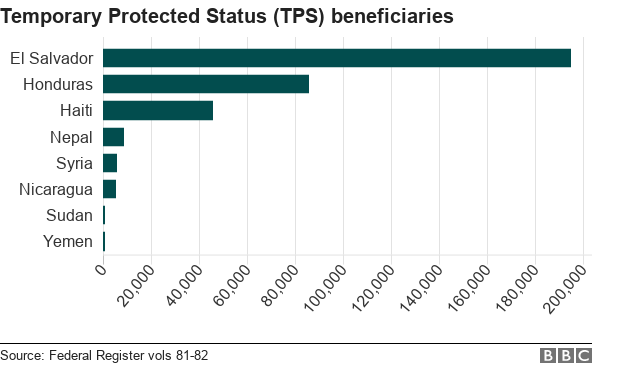
Ten countries, making up over 300,000 US immigrants, have been granted TPS protections since it was first signed into law by President George Bush.
Special protection status for 59,000 Haitians and 5,300 Nicaraguans was terminated late last year, and also takes effect in 2019.
Salvadoreans are the largest group by far to receive TPS, after two earthquakes devastated communities the country in March 2001.
Over the next 15 years, the programme was re-authorised by US presidents several times.
What has reaction been?
Mark Krikorian of the Center for Immigration Studies, hailed Monday's decision as a "long overdue move".
"The idea that there should be a 'temporary status' that lasts for 19 years is ridiculous," he told BBC News.
He believed the TPS law should be scrapped and replaced with a process in which Congress would have to vote to re-authorise temporary immigration protections.
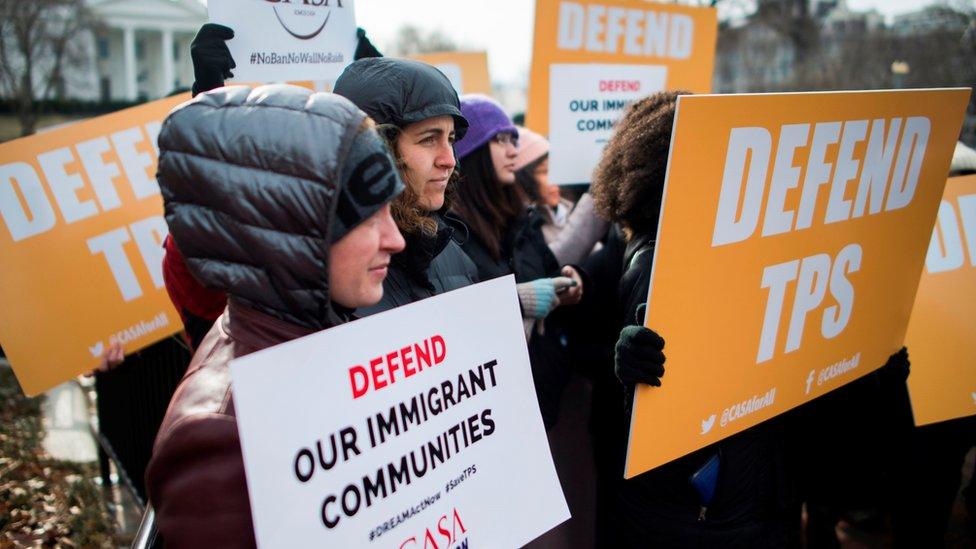
Demonstrations were held in Washington against Mr Trump's decision
Meanwhile, Salvadoreans with the TPS status criticised the decision.
"My life is here," Minda Hernández, a 48-year-old housekeeper from Long Island who left El Salvador 20 years ago, was quoted as saying by the AFP news agency.
"This is where my home is, where I pay my taxes. I am happy here - even if I work myself to death."
The Salvadorean government has been lobbying the US to extend protections for people from their country living in the US.
El Salvador's Foreign Minister Hugo Martínez said his government would work with the Trump administration to find a permanent solution for Salvadoreans working in the US.
Money earned and sent back to families in El Salvador also makes a valuable contribution to the country's economy, the Center for American Progress says. The think tank estimates that in 2015, remittances made up more than 15% of El Salvador's GDP.
Democrats in Congress have condemned the decision, with many criticising the move for ignoring the violence in El Salvador, which has one of the world's highest murder rates.
"Thousands of families will worry about being torn apart because of this callous and irrational decision," Washington DC Mayor Murial Bowser said.
Nevada Senator Catherine Cortez Masto said it was "a poignant reminder that we have an anti-immigrant president who turns his back on hardworking families and insists on governing by fear and intimidation".
Consulates in the US are offering advice to Salvadoreans.
- Published7 November 2017
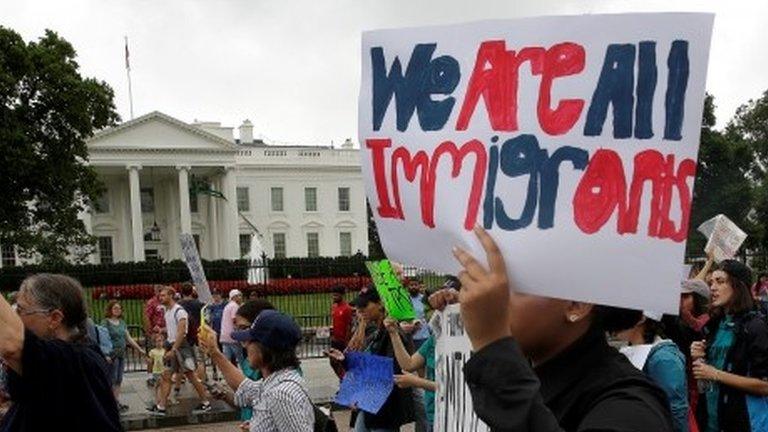
- Published9 January 2018
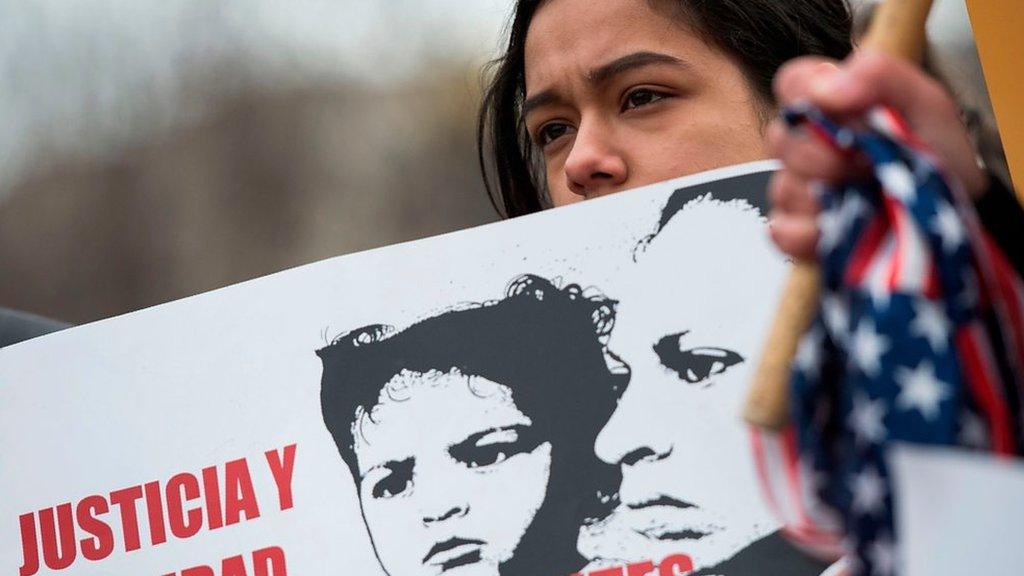
- Published22 May 2017
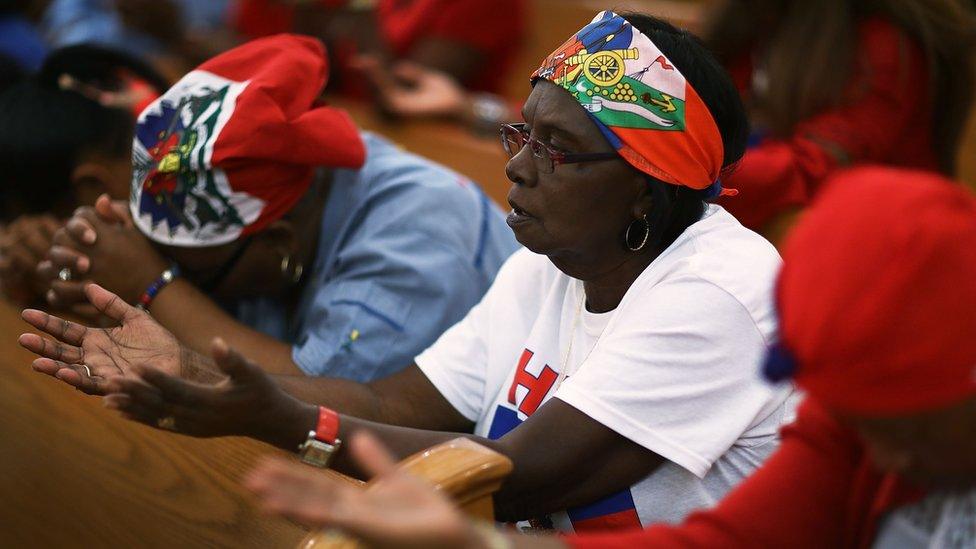
- Published19 November 2017
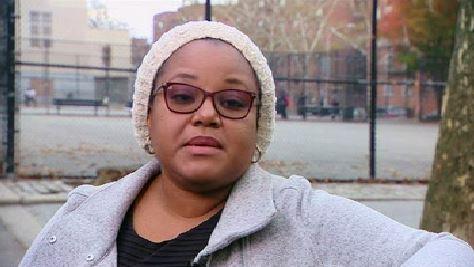
- Published22 November 2017
